MercoPress. South Atlantic News Agency
Tag: Argentina Central Bank
-
Friday, September 20th 2019 - 10:22 UTC
Argentine Central Bank will produce more Pesos: higher inflation is expected

According to estimates among analysts, the Argentine Peso's production will be around $ 300,000 million for the remainder of the year, estimating inflation for 2020 even higher than this year. 80% of that issuance corresponds to the last month of the year, breaking the objective that the Central Bank of Argentina (BCRA) of “zero-emission” had set and jeopardized the exchange control as it works since August.
-
Friday, September 13th 2019 - 12:49 UTC
Argentine central bank announces further currency controls

Argentina's central bank this week announced further currency controls in an effort to tame speculation and stem a spiraling debt crisis in Latin America's third-largest economy.
-
Tuesday, September 10th 2019 - 09:54 UTC
Argentine gross public debt stands at US$ 337.367 million; 2020 repayments sum US$ 44.232 million
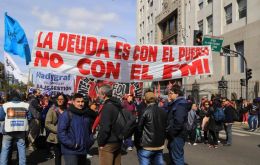
Argentine gross public debt climbed 3% at the end of the second quarter of the year and has reached US$ 337.367 million compared to US$ 327.166 million in the same period last year, according to the Financial Secretariat.
-
Tuesday, September 3rd 2019 - 09:55 UTC
Argentina talking with IMF on monetary targets; Central bank insists the country's financial system is “solid”
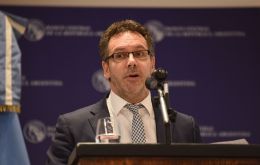
Argentina’s central bank is talking to the International Monetary Fund about revising its monetary policy target for September, the institution’s president Guido Sandleris told reporters in Buenos Aires on Monday.
-
Monday, September 2nd 2019 - 09:50 UTC
IMF supports Argentina and its temporary currency controls
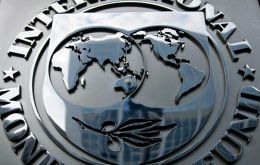
The International Monetary Fund said it will stand by Argentina after the government authorized currency controls on Sunday in an about-face by President Mauricio Macri, who had previously lifted many protectionist practices of his predecessor, Cristina Fernandez de Kirchner.
-
Wednesday, August 28th 2019 - 09:59 UTC
Macri anticipates that Argentina's inflation will accelerate to 3% in August; country risk reaches 1.990 points

Argentine President Mauricio Macri said that monthly inflation would accelerate to 3% in August following a slump in the peso, as the central bank intervened heavily in the market on Tuesday to prop up the local currency.
-
Tuesday, August 27th 2019 - 10:56 UTC
Argentines fear of a repeat of the “corralitos” of 1989 and 2002
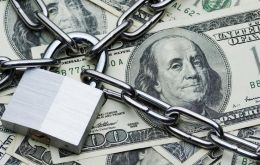
It happened in 1989. It happened in 2002. Argentines who are old enough to remember do not want to go through it again.
-
Friday, July 12th 2019 - 10:26 UTC
The IMF will release another $ 5.4 billion today for Argentina
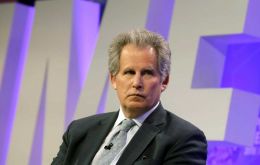
Mauricio Macri’s Government must guarantee that with the new disbursement in favor of Argentina for USD 5.4 billion that the International Monetary Fund (IMF) will sign this Friday will comply with all the deadlines agreed for this year. This new disbursement is given after the approval of the quarterly goals to March by the technical staff of the fund.
-
Wednesday, May 1st 2019 - 02:49 UTC
The Argentine Peso responds to central bank measures sponsored by the IMF
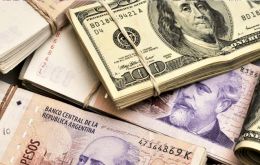
Argentina’s embattled peso currency gained briefly against the dollar on Tuesday after the central bank announced measures aimed at controlling volatility of the currency amid a grinding recession.
-
Tuesday, April 30th 2019 - 09:59 UTC
Argentine Peso gains strength as IMF agrees to more central bank flexibility
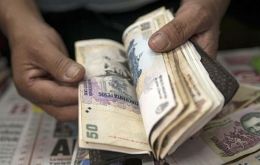
Argentina’s embattled peso gained strength on Monday after the central bank said it would ease limits on its foreign exchange market interventions, signaling its willingness to sell reserves in an effort to better control the volatility of the local currency. The peso began the session up 3.37% and closed 3.56% stronger at 44.37 per U.S. dollar.
